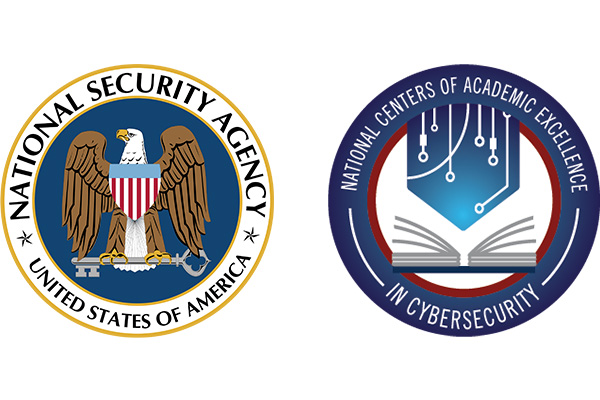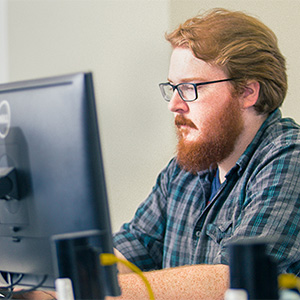Create a More Secure World with a Degree in Cybersecurity
STLCC's cybersecurity programs prepare information technology students for entry-level positions in information assurance and security. Offered both on-campus and online, our cybersecurity classes help students develop skills in implementing security measures, responding to breaches and safeguarding digital infrastructure. Through coursework and practical exercises, students gain the knowledge needed to protect organizations from cyber threats.
What is Cybersecurity at
St. Louis Community College?
The cybersecurity programs at STLCC prepare you with cutting-edge skills to protect digital assets. Students master key concepts including computer architecture, programming and networking, while also gaining expertise in cryptography and risk assessment.
We offer two programs to meet your needs:
- Associate of applied science (AAS): foundational degree that combines cybersecurity theory and hands-on activities with general education courses
- Certificate of proficiency (CP): recommended for those that already possess an AAS or higher college degree in any area and wish to obtain cybersecurity skills
The National Security Agency and the National Centers for Academic Excellence in Cybersecurity have designated STLCC as a National Center of Academic Excellence in Cyber Defense (CAE-CD). The goal of the program is to reduce vulnerability in our national information infrastructure by promoting higher education and research in cyber defense and producing professionals with cyber defense expertise. This means that STLCC has a robust cybersecurity program that meets the national training standards.


What Can You Do with a Cybersecurity Degree?
With a cybersecurity degree, you can work as a cybersecurity technician or analyst. You'll help organizations protect their computer systems, networks and data from cyber threats, perform security assessments and respond to security incidents.
Cybersecurity Program Information
- Degrees offered: Associate in applied science, certificate of proficiency
- Locations: Forest Park, Online
- AAS hours to complete: 60
- CP hours to complete: 45
- Program contact name: Craig Chott
- Program contact email: cchott@stlcc.edu
Tuition for district residents is $122 per credit hour for in-district students. Find out more about our straightforward and low-cost tuition structure.
Why You Should Choose STLCC's Cybersecurity Programs

Schedules Built for Your Busy Life
Fitting a quality education into your busy life is easy with the flexibility STLCC offers, including day and evening classes, in-person and live virtual lectures, as well as online and hybrid options.

Graduate with Little or No Debt
We believe cost should never be a barrier to achieving your potential. Save over $4,700 per year with tuition that's one-third lower than other local institutions

Build Skills you Need with Stackable Credentials
Stackable credentials help students level up career opportunities without investing a large amount of time and resources. Students can stack a series of traditional and nontraditional credentials including degrees, certificates, apprenticeships and more.

Get Hands-On Training with Tech Academy
Tech Academy jump-starts tech careers in cybersecurity, software development and network engineering through support of advisors and mentoring from faculty coaches. Free laptop with software, free industry certification exam, paid internship and more.
STLCC. What's your reason?